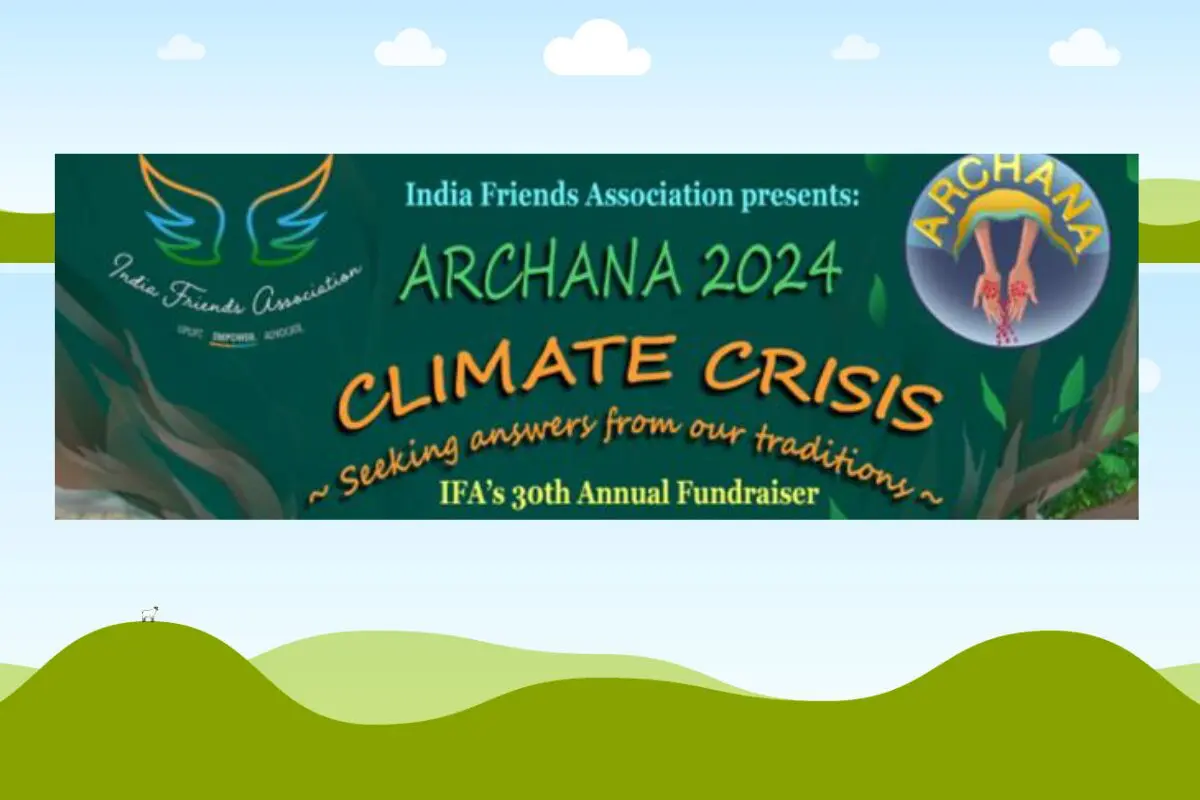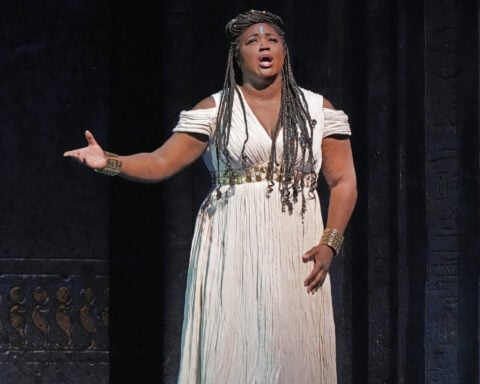The Indian Friends Association put on Archana, a yearly cultural event that shows off the rich history of Indian music and dance, on the lively spring evening of May 11, 2024. The theme of this year's event was subtle yet powerful: it brought attention to the critical climate crisis: seeking answers from our traditions, which hit home with the crowd.
The event was held at the Fred Kavli Theater in Thousand Oaks. More than 1000 people were in attendance to witness the performances of 175+ performers. All the performers were volunteers from the local Indian community.
The Indian Friends Association is a non-profit group that aims to help India's poorest people become economically independent and self-sufficient. Through events like Archana, the Indian Friends Association wants more people to know about the event, and their work, to support the organization's important goal.
The audience was taken to the Indian subcontinent when the curtains opened, and the beautiful sounds of the piano, drums, guitar, and tabla filled the room. The skilled musicians, who were dressed in traditional Indian clothes, set the mood for an evening that would both honor Indian culture and bring attention to the urgent problem of climate change. The carefully chosen program showed that the Indian Friends Association was dedicated to using art as a way to make social comments.
The first show was a touching and lively dance show by young children set to lively Bollywood music. The kids showed the beauty of nature through their dancing, which was filled with love and wonder. As they spun and jumped, happy as could be, they were lost in the pure thrill of play and the sound of the rain.
The second performance, which featured young people of second-generation Indian American descent, had a clear message: if we want to coexist peacefully with nature, we must confront and eradicate the injustices that exist in our own communities. Through an amazing dance performance, they expertly crossed the line between traditional and modern, showing pride in their cultural roots while also embracing their modern selves. This exciting mix of old and new showed how strong unity is and how important it is to value our differences.
The third performance was about the climate disaster and how it has destroyed rivers. For hundreds of years, the River Ganga has been the center of Indian culture. People have revered it as Mother Ganga, the river that cleans and forgives sins. But because we treat nature like a resource for profit, this lack of respect is forcing us to destroy everything.
The fourth show was a thought-provoking skit about the importance of trees and the need to protect them. The play made a point of showing that each tree is very important to keeping the ecosystem in order. It was also funny to see how towns were built by cutting down forests, and now villages have to deal with the same problems in the name of progress and growth.
The fifth show was a lively and upbeat traditional "Giddha and Bhangra" dance from the northern part of India, also known as the "farmers' dance." This lively show honored the sacred act of growing food from the ground, which has been the basis of society for thousands of years. Farmers have taken care of the land and been cared for by it in return for all their hard work.
The sixth performance was "Oyilattam," an energetic harvest dance that examined the important problem of climate change through the rich lens of South Indian traditions. Culture, community, and environmental care were all intertwined in this captivating performance. It gave a fresh look at the problems caused by climate change and how important it is to protect our natural heritage.
The last act was the mesmerizing "Ghanana Ghanana" song, it was a rain dance honoring the precious gift of rain from heaven. For hundreds of years, farmers have looked up at the sky with worry, not knowing if it would rain, or not. Set in a small town in western India, this dance took us to a place where the land was dry, the crops were thirsty, and the sun was beating down nonstop. Still, the locals don't give up hope, even though they look up at the clear sky and feel desperate. They sing and dance with unshakable faith, begging the rain gods to bring the life-giving water that will heal their land and feed their crops.
Source: https://www.indiafriendsassociation.org
Indian Friends Association (IFA):
“IFA" was started in 1993 by a group of Indian Americans in Southern California after the devastating Latur earthquake. Concerned about the red tape and corruption involved in charity work, they wanted to explore direct avenues for sending their support. The success of this endeavor and the satisfaction it received encouraged them to make a long-term commitment.
The group has since evolved into a solid organization with a well-thought-out charter and a clear philosophy. IFA is designed to function as a catalyst in activities promoting economic empowerment and self-sufficiency for India’s most underprivileged populations. Increasingly, the diaspora sees it as a vehicle to channel their energies and resources into bringing about positive change in India.”
“India Friends Association is a registered 501(c)(3) non-profit organization that was established in 1993 to empower India’s underprivileged and marginalized communities. Read more here.

 Working Well: Returning to the office can disrupt life. Here are some tips to navigate the changes
Working Well: Returning to the office can disrupt life. Here are some tips to navigate the changes
 India considers cutting personal income tax to lift consumption, sources say
India considers cutting personal income tax to lift consumption, sources say
 Russia arrests 4 suspects accused of plotting to kill top military officers on Ukraine's orders
Russia arrests 4 suspects accused of plotting to kill top military officers on Ukraine's orders
 What is known about a plane crash in Kazakhstan that killed 38 of 67 people on board
What is known about a plane crash in Kazakhstan that killed 38 of 67 people on board
 More than 10,000 migrants died this year trying to reach Spain by sea, aid group says
More than 10,000 migrants died this year trying to reach Spain by sea, aid group says
 China's Xi sends condolences over Azerbaijan Airlines plane crash
China's Xi sends condolences over Azerbaijan Airlines plane crash
 Japan's Nippon Steel extends closing date for U.S. Steel acquisition
Japan's Nippon Steel extends closing date for U.S. Steel acquisition
 3 shot and 1 stabbed at Phoenix airport in apparent family dispute on Christmas night, officials say
3 shot and 1 stabbed at Phoenix airport in apparent family dispute on Christmas night, officials say
 Azerbaijan observes day of mourning for air crash victims as speculation mount about its cause
Azerbaijan observes day of mourning for air crash victims as speculation mount about its cause







